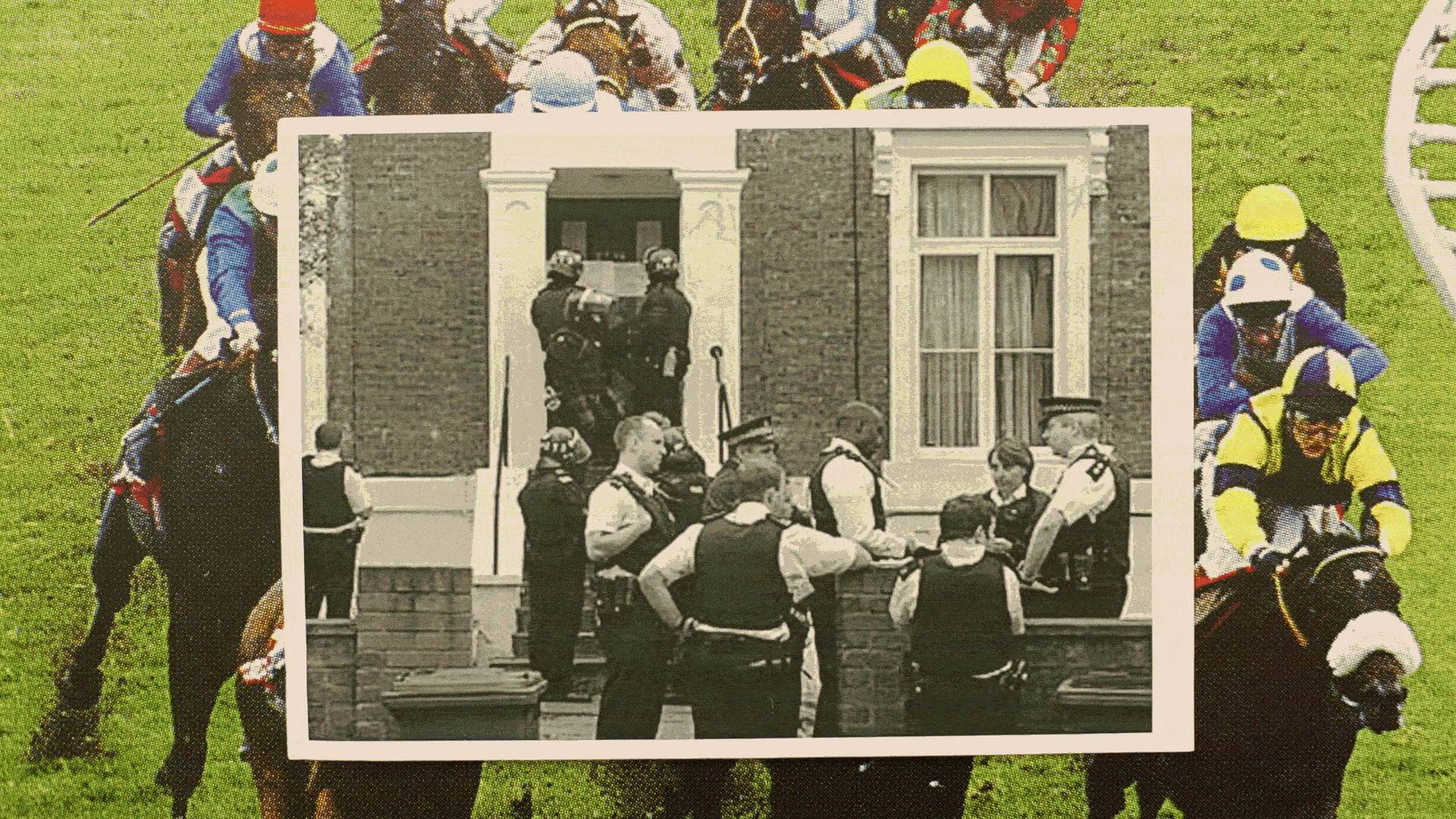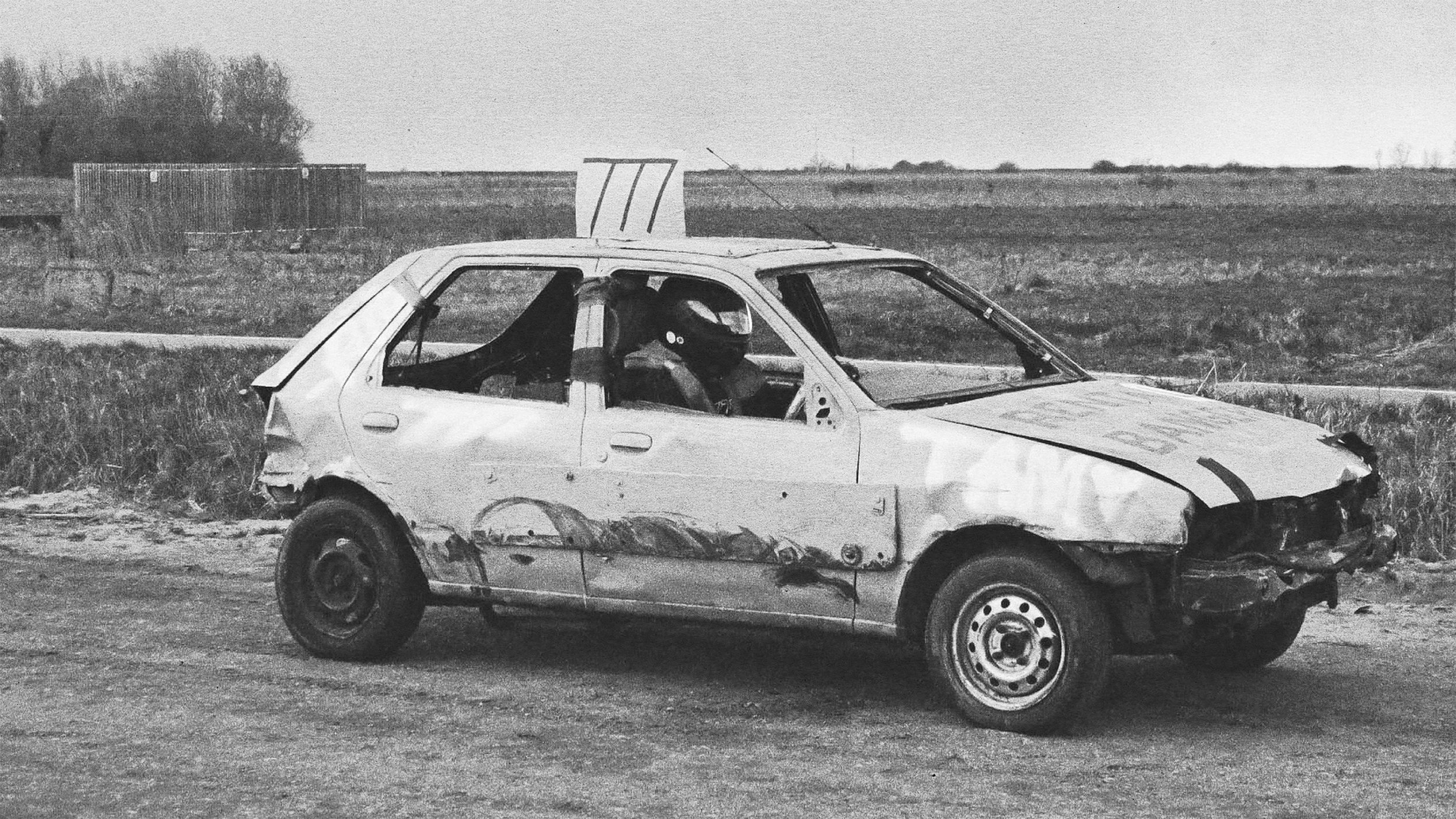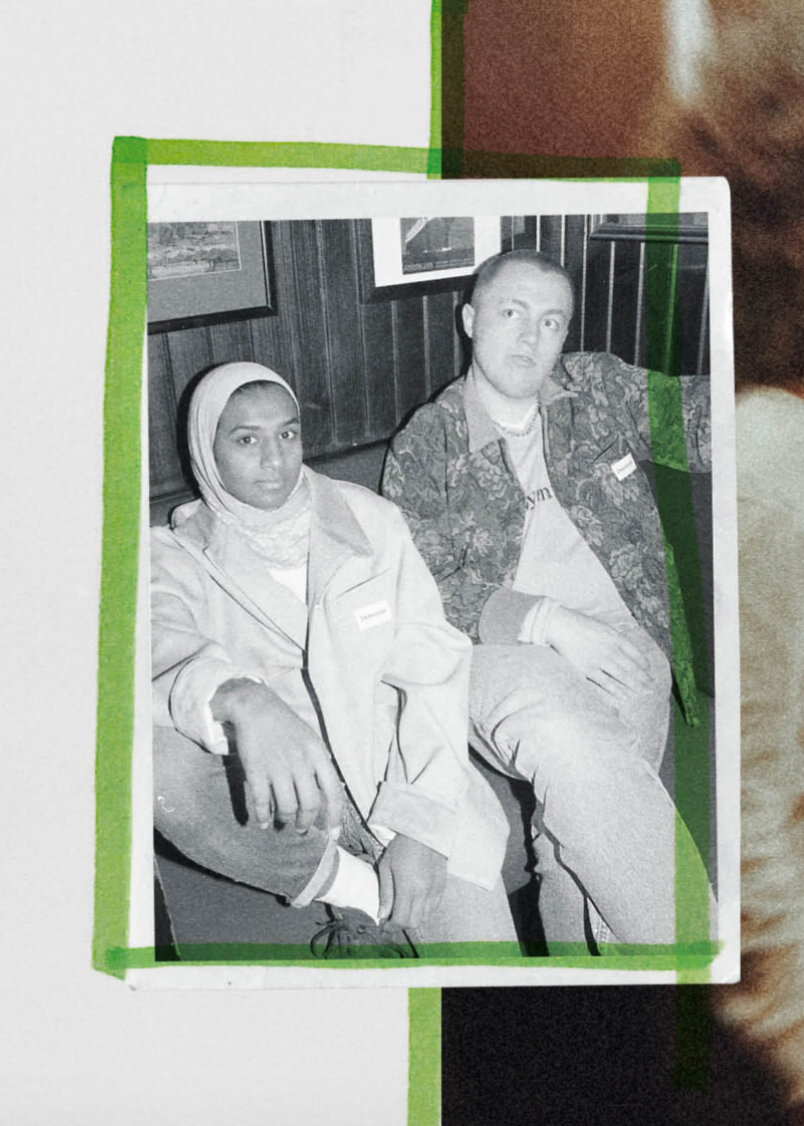UKSCN: THE YOUTH CLIMATE STRIKERS CHANGING THE WHITE CLIMATE NARRATIVE
Current Affairs
UKSCN: THE YOUTH CLIMATE STRIKERS CHANGING THE WHITE CLIMATE NARRATIVE
The question is always asked, what would happen if us POC folk were protesting on Oxford Street? We all know the police presence would increase, and the response would be a little more heated, a little more hostile. POCs should have the loudest voice in this issue, as the climate crisis is a fundamentally racist crisis that has been built and perpetuated by postcolonial industrialisation that has disproportionately set back countries in the Global South.
The UKSCN is a group trying to change this narrative and showcase a more holistic approach to climate change, tackling the root cause and calling for action with a Green New Deal that puts the priorities of those in the Global South first.
Ayo Fagbemi, Co-founder of Play Nice caught up with Jessica Ahmed & Scarlett Westbrook two climate activists who are using their voice, to tell the truth and inspire more POCs to speak up in the biggest struggle that humanity has ever faced. Unfazed by their age, the two speak with a fervour and drive that’s infectious.
Words:
Ayo Fagbemi
Artwork:
Sam Douglas
First of all, thank you for all the work you guys have done in this climate crisis, how does it feel knowing you have inspired so many?
JA: It encourages me to keep calling attention to the severity of the climate crisis and keep calling for change. The tipping point for me was in May after attending the strike.
SW: It doesn’t feel like I have directly done anything, we are just trying to fight for our existence really, it is quite surreal the feedback I have had from it. It’s amazing and I am so, so happy that I have been put in a position to spread awareness about this issue that is so prevalent and is going to affect us all. Climate change doesn’t discriminate, we are all going to be affected. It will be those in the Global South who are disproportionately affected.
What was your tipping point moment which made you stand up and know you had to do something?
JA: I heard Anna Taylor and others speak on a panel and that made me realise that I’m not as powerless as I may have previously thought.
SW: I did my A-Level politics when I was 13, so I’m the youngest person in the world to have an A-Level in politics, and I did the environment as a unit. I remember looking through all the legislation and seeing that we are not meeting any of the targets, thinking to myself this is an emergency and we are not doing anything to prevent this – we are doing absolutely nothing, for the biggest conflict we are ever going to face. So I started talking to people about it, and getting more into green politics, the school strikes were a revolutionary way for young people to have their voices heard.
How do your parents feel about this issue, it has sparked debate in many households including my own?
JA: At first, my parents weren’t the most supportive but once I opened their eyes to the seriousness of the issue and showed them that this was something I was passionate about they became increasingly supportive and made relevant lifestyle changes.
SW: My parents are quite supportive, I have turned vegetarian because of this, we are trying to cut down on single-use plastic – they do see the need for it, and they have been great. I couldn’t find them enough – the number of times we have to go and do talks they have always just been there, supporting me through this.
As a POC in the green movement have your experiences been like, do you ever feel tokenised?
JA: As a POC, I often get worried that my voice is taken for granted and used in order to fulfil a diversity quota.
SW: As a person of colour I have experienced a lot of racism and that has been from people my age and lots of people older than me, after I wrote a column for the Independent about why we shouldn’t let colonialism be ignored, as it is a big issue in terms of the climate crisis. I think it is despicable as you can’t campaign for climate justice, without understanding that you can’t be racist.
A lot of people say that if these protests were put on by POC the police presence would be a lot more hostile, do you agree?
JA: I agree, POC tend to have to be more careful with their decisions and can’t be as risky as non-POC in terms of what they do and how they raise awareness.
SW: I definitely think that if these protests were put on by POC, the police presence would be a lot more hostile. There are people of colour in the movement, but it is predominantly white in Birmingham, my nearest city. I’m like the only person of colour there. The police are institutionally racist, we just have to accept that – at this point, we have to campaign for reform the criminal justice system.
“
CLIMATE CHANGE DOESN’T DISCRIMINATE, WE ARE ALL GOING TO BE AFFECTED, BUT IT WILL BE THOSE IN THE GLOBAL SOUTH WHO ARE DISPROPORTIONATELY AFFECTED.
Why do you think the movement has such a white lens on it?
JA: People in the global south have been campaigning for change for years but have been ignored and honestly it hurts to think about why this may be.
SW: The current NGOs are calling for net-zero by 2045, this is a very white lens as it is incredibly Conversative and it is a death sentence for people who live in the Global South. It is too late. This involves moving indigenous people from their home, getting rid of their land to plant trees. This is not acceptable in any way. They need to understand that they have the privilege and they do not understand what they are putting people through by trying to “save the earth” it is not really saving the Earth if you are sacrificing lives. This comes from our media, it is incredibly Anglo-centric, our scope of Global affairs is so narrow, that I don’t think people realise it is not just going to be England that is suffering from climate change. We are not like this as we are campaigning for nearer to 2030, which is a big difference.
Do you think there needs to be more talk about the impact imperialism has had on the climate crisis?
JA: I know for certain that there needs to be more talk about the impact of imperialism in general and how it has impacted upon the climate crisis but people aren’t ready to have this conversation.
SW: Imperialism is the biggest cause of the climate crisis, at school we only learn about the benefits of colonialism.
With the threat of mass migration, with the International Organisation for Migration saying that between up to 1.5 billion will have to leave their homes by 2050, how do we tell people that the climate crisis is also a racist one?
JA: What we need is more news coverage and for more POC to speak up about this.
SW: I don’t know, I think we need to have a government scheme, and to reform the curriculum and put adults back into school, and get people to realise the core problems of climate change. We need to get people to put their prejudices aside, and whilst we can discriminate climate change will not.
How do we encourage more POC to get involved and have their voices heard on this issue?
JA: Seeing people who look like you using their voices and their platform for good, encourages others to also take a stand meaning. We need more POCs who are already doing this to be showcased more often.
SW: We need more people of colour to get involved in this issue, I think this is difficult to comment on, but if you are seeing a movement that is so white, it is hard to break into. I know it is hard but this is your future. It’s going to be difficult but you have to go and have your voice heard, and do everything you can, and once you take the first step it will only get easier from there.
What is your goal for this campaign?
SW: My goal is to have a Green New Deal, we need to be carbon neutral by 2030, and repay our historic debt that we have amassed during the industrial revolution. We cannot let the Global South fall behind, we can’t profit again, whilst they suffer. We need millions of new jobs, reform the curriculum and solve the inequality problem.
A lot of people talk about personal responsibility being too big of a burden, how do you cope with this?
JA: It’s all about having a balance between activism and my regular life, I often remind myself of what the movement has achieved so far; I take regular breaks and I have hobbies.
SW: We need systematic change, this is for the government to deal with, and we must change to adopt a Green New Deal. There is definitely too much pressure on the individual and this is the government trying to scapegoat people, it is ridiculous. We need the government to act.
Instagram: @UKSCN













